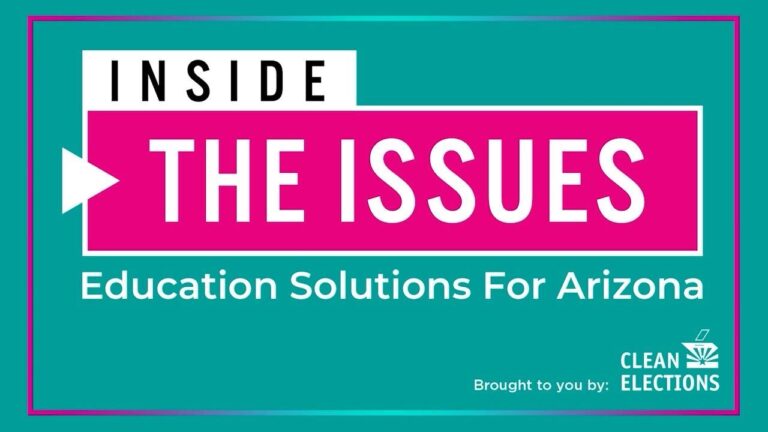PHOENIX — Education experts, community leaders, and concerned residents gathered at a recent town hall meeting in Arizona to address pressing challenges facing the state’s school systems. Hosted by KTAR News 92.3 FM, the event provided a platform for stakeholders to discuss potential solutions aimed at improving student outcomes, securing funding, and enhancing teacher support. As Arizona continues to navigate complex educational issues, the town hall served as a critical forum for collaboration and community engagement.
Experts Discuss Challenges Facing Arizona Schools at Community Town Hall
At a recent community town hall meeting, education experts and local leaders convened to confront the pressing issues plaguing Arizona’s educational system. Discussions highlighted concerns ranging from teacher shortages to unequal access to technology, emphasizing how these challenges directly impact student performance and well-being. Participants underscored the urgent need for collaborative, innovative policy solutions that address both urban and rural school district disparities.
Key challenges discussed included:
- Recruitment and retention of qualified educators
- Funding gaps across districts
- Integration of modern technology in classrooms
- Support for students with special needs
| Challenge | Impact | Proposed Solution |
|---|---|---|
| Teacher Shortages | Increased class sizes | Incentives and training programs |
| Funding Inequality | Limited resources | Equitable state funding model |
| Technology Access | Learning disruptions | Expanded broadband initiatives |
| Special Needs Support | Under-served students | Enhanced specialized staff hiring |
Innovative Strategies Proposed to Address Teacher Shortages and Funding Gaps
To combat persistent teacher shortages and bridge funding gaps in Arizona’s schools, experts gathered innovative strategies that prioritize both immediate relief and long-term sustainability. Among the proposed approaches, attracting educators through enhanced incentive programs such as student loan forgiveness, competitive salaries, and housing assistance stood out as pivotal. Additionally, a significant focus was placed on expanding alternative certification pathways to quickly integrate professionals from other fields into classrooms, providing a much-needed boost to understaffed districts.
Funding reform discussions highlighted the importance of localized decision-making and equitable resource allocation. Suggestions aimed to ensure that underfunded schools receive a fairer share of the state budget by adopting a model that considers student socio-economic status and community needs. Experts also emphasized the need to leverage technology and public-private partnerships to maximize educational resources without overburdening taxpayers.
- Incentive programs: Loan forgiveness, housing subsidies, signing bonuses
- Certification flexibility: Fast-track credentials for mid-career professionals
- Funding models: Weighted funding formulas, community-driven budgeting
- Technological investments: Virtual classrooms, resource-sharing platforms
| Strategy | Expected Impact | Implementation Timeline |
|---|---|---|
| Teacher Incentive Programs | Increase recruitment by 25% | Within 12 months |
| Alternative Certification | Shorten hiring process by 50% | 6 months |
| Funding Reform | Improve equity scores by 30% | 2 years |
Stakeholders Emphasize Importance of Early Childhood Education and Support Services
At the recent town hall meeting, community leaders and education experts spotlighted early childhood education as a cornerstone for future academic success in Arizona. Emphasizing the critical role these foundational years play, stakeholders called for increased investment in preschools and support services that address both educational and developmental needs of young learners. Discussions highlighted the disparity in access to quality programs, urging policy makers to prioritize equity across all regions.
Participants also outlined key support services essential for fostering well-rounded growth, including mental health counseling, family engagement initiatives, and nutrition programs. The collaborative approach advocated by experts not only targets academic readiness but also the social and emotional well-being of children. Below is a summary of the primary areas highlighted for immediate action:
- Expanded access to affordable, high-quality preschool programs.
- Integrated support services such as counseling and health screenings.
- Community partnership development to boost family involvement.
| Support Service | Purpose | Impact |
|---|---|---|
| Early Literacy Programs | Boost reading skills | Improves long-term academic outcomes |
| Health & Nutrition | Ensure physical well-being | Supports concentration and growth |
| Family Engagement | Increase parental involvement | Strengthens child development at home |
Experts Call for Collaborative Efforts to Improve Student Outcomes and Graduation Rates
In a recent town hall gathering, education experts emphasized the importance of unified strategies to elevate student success across Arizona’s diverse school districts. They urged stakeholders—including teachers, parents, policymakers, and community leaders—to focus on holistic support systems that address academic, emotional, and social challenges faced by students. Among the key recommendations was increased investment in early intervention programs, tailored mentorship initiatives, and technology integration aimed at personalized learning experiences.
Experts also highlighted several collaborative approaches that have shown promise in improving graduation rates and overall educational outcomes. These include:
- Enhanced community partnerships to provide real-world learning opportunities and resources.
- Data-driven decision making to identify at-risk students and implement timely support.
- Expanded access to mental health services within schools.
- Professional development for educators centered on culturally responsive teaching methods.
| Initiative | Impact | Next Steps |
|---|---|---|
| Early Intervention Programs | Reduces dropout rates by 15% | Secure funding statewide |
| Community Mentorships | Boosts student engagement by 20% | Expand local partnerships |
| Mental Health Services | Improves attendance and focus | Integrate with school counseling |
Wrapping Up
As the town hall concluded, experts and community members alike emphasized the urgent need for collaborative efforts to address Arizona’s educational challenges. With a range of solutions discussed—from funding reforms to curriculum updates—the event highlighted the complexity of the issues facing the state’s schools. Stakeholders expressed hope that these dialogues will pave the way for effective policies and tangible improvements in Arizona’s education system. KTAR News 92.3 FM will continue to monitor developments and bring updates on this critical conversation impacting students, educators, and families across the state.







